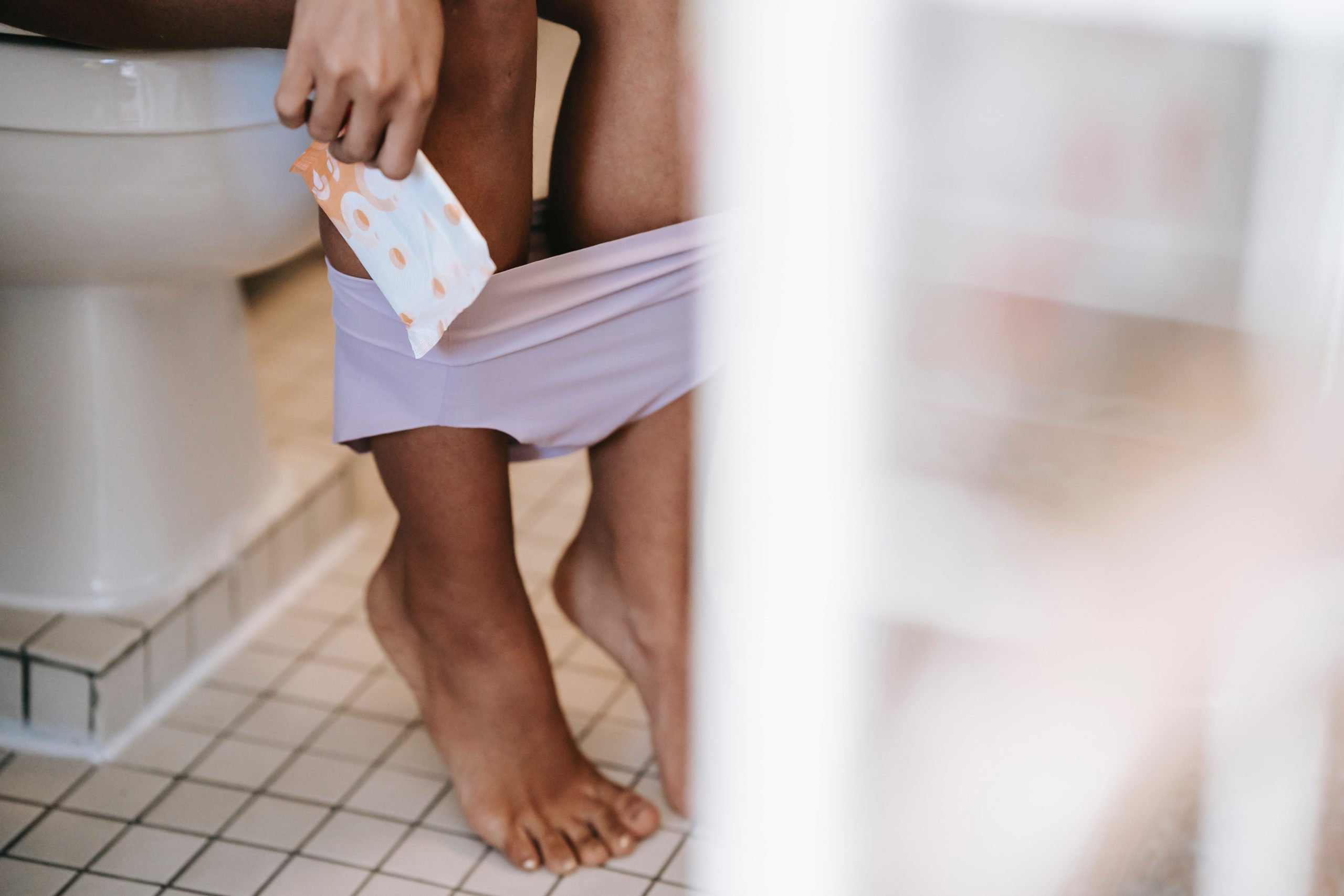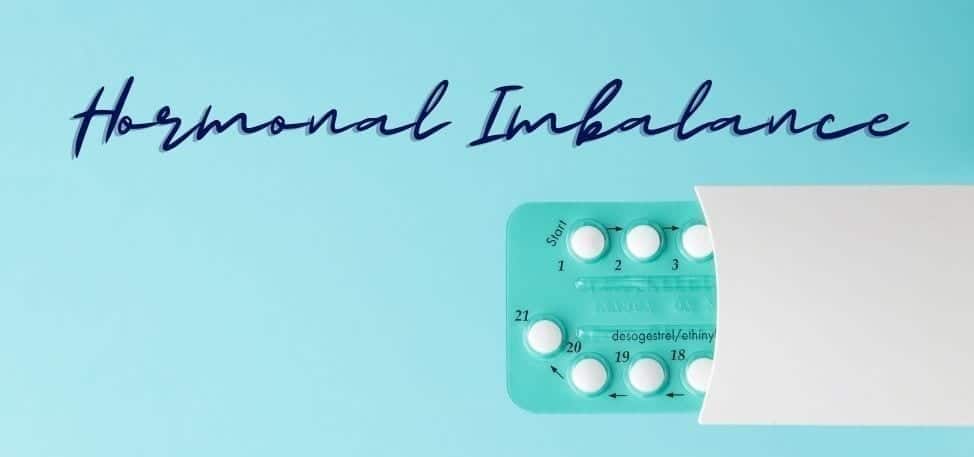
It must be that time of the month again…or is it? Wait, didn’t I just get my period a couple of weeks ago? So, why am I so bloated? While most of us expect to feel bloated during our period, we’re confused and annoyed when an unexpected case of the bloats pops up mid-cycle. So, what’s causing the bloating before your period? And what can you do about it? Let’s take a look…
We all know the feeling – and the look – of being bloated. It sucks. Your midsection looks and feels fluffy. Your pants are tighter than usual, and you feel like a beached whale. Please tell us we’re not the only ones…
But what is bloating, exactly? Generally speaking, you get bloated when your gut has more gas or solids than usual. All that extra stuff in there is why your abdomen feels full and stretched… Because it is! But, bloating, AKA fluid retention can be caused by excess liquids in your body. And that can mean swollen ankles, puffy feet, and jeans that no longer fit, among other things
There are a surprising number of reasons you can feel bloated. Let’s take it back to grade school science class and talk about how gas, liquids, and solids – and how they can make you feel bloated. And then we’ll jump to health class – or the health class you wish you’d had – and talk about bloating before your period and how everything interacts.
Gassy. Trapped wind. The discomfort. The pain! We’ve all been there. Trapped gas is one of the most common reasons for the bloats. It’s usually caused by swallowing too much air too quickly – like when you eat all of your popcorn before the movie even starts. Again, please tell us we’re not the only ones… Gas can also build up in your gut when you eat certain foods. Those who are lactose-intolerant or have Irritable Bowel Syndrome, Celiac Disease, or any other Gastrointestinal (GI) issues are particularly susceptible. But it can happen to anyone.
Beans and other high-fiber legumes can be particularly troubling for some people. Why? Because many Western cultures don’t eat them all that often. So the bacteria in our guts can’t properly digest the kinds of fiber you get from legumes. As a result, the fiber ferments in your gut and causes gas. Sounds gross, right? But it does get better over time. So, it’s no excuse to exclude legumes from your diet. Just give it some time.
We’re now onto solids. What does that mean? Well… Poop. We’re going to talk about poop. Specifically, what happens when you don’t poop. No one likes to feel constipated. It’s uncomfortable and frustrating and can become quite a problem if left untreated. The frequency of bowel movements depends on the person. Some go number two a couple of times every day, while others go once every other day. But if it’s been longer than usual, this could be the reason for your bloating. The only hard-and-fast rule when it comes to the frequency of bowel movements is that 3 days is too long to go without one. Other than that, you do you.
Water retention is when the cells in your body hold onto more water than usual. It’s officially referred to as edema or fluid retention. But they all mean the same thing: swelling, which we often call bloating. Depending on the cause, the fluid can be all over your body or just in some locations. For example, many people with heart conditions experience swelling in their legs, ankles, and feet. While people taking certain medications can experience swelling in their faces. If you don’t have any pre-existing medical conditions and aren’t taking any medications with swelling as a listed side effect, it could be your diet. More specifically, you could be eating too much salt.
Sure, but what about when you don’t have any of those issues, and you’re not even on your period, but you still feel swollen? And by that, we mean fluid-based bloating. If you’re experiencing digestive issues, including gas, that aren’t related to PMS, it might be worth talking to a doctor. As if bloating during your period isn’t enough, it’s also common to experience bloating during Ovulation.
For many menstruators, ovulation generally happens around the middle of their cycle, but there are always variations. If you’re not sure that you’re ovulating, you can often find ovulation kits near the pregnancy tests in your local drugstore, or you can track your body temperature and cervical mucus to help you know when you’re ovulating. So why does it happen? The leading theory: Hormones. We aren’t sure of all the details, but we know that Estrogen and Luteinizing Hormone, or LH, levels are high right around Ovulation. It’s possible this can trigger water retention and other minor, temporary – but annoying – GI disturbances.
A sudden drop in hormones – like the one that happens at the beginning of your period – can also cause GI issues. As your uterus sheds its lining, Estrogen, Progesterone, and LH levels are all low. And if you’ve been a Hormona for any length of time, then you know that your hormones affect so much more than your cycle. And this is just another example of that.
Because of the hormonal shifts and the relaxing of the uterine muscles, it’s not uncommon for things to feel a little… Uneasy in the GI tract. As a result, bloating, gas, constipation, and period poops are experienced by many women.
Managing bloating symptoms can be tricky because there are so many causes, and sometimes it’s out of your control. But you can do a few things to lessen those uncomfortable effects.
Make sure you’re eating plenty of whole foods, drinking lots of fluids, and limiting your sodium intake. The fiber you get from eating whole grains, fruit, and vegetables will help your bowel movements stay – or become – regular. In other words, that celery and kale smoothie won’t cut it. Try a salad or some veggies with hummus and enjoy that fiber. If you’re really backed up, you could use a laxative tea for a short time. Follow the directions and make sure you have access to a bathroom for the next day or so until you feel like it’s all cleared out.
Laxative teas are generally considered safe when used in moderation and can usually be found in the tea aisle at your local grocery store or at a pharmacy. However, if you are on any medications or have any existing health conditions, please talk to your pharmacist or doctor first. Admittedly, it sounds counterintuitive to drink more water when you’re bloated, especially if you think you could be retaining water. Researchers believe that if you don’t drink enough water, your kidneys will compensate by holding onto more fluids in your body.
Even if you increase your water intake, it may not significantly change your body fluid levels or weight. This can lead to concentrated urine, which is different from dehydration caused by exercise. Aside from that, fluids can also help soften stool and make it easier to pass. Notice we said “fluids” and not “water.” Of course, water is the most affordable and convenient fluid. But if you’re not a fan, you can try peppermint and ginger teas. Buy tea bags or use the fresh plant or root, and you’re good to go.
Lastly, go easy on the salt. Salt will make your body hold onto all that water. And that’s literally the opposite of what you want. We all love a good salty snack, but some sacrifices are worth making. This is one of them.
That’s right. Exercise! But don’t worry. You don’t need to train for a triathlon or anything like that. A walk, a bike ride, or a kitchen dance party will do the trick and help get things moving through your gut.
You might not like this answer, but it’s the truth. You can’t prevent bloating from ever happening. It’s going to happen. But! If you follow those diet and exercise tips consistently, you will likely see a decrease in the severity and frequency of the bloats. The key is to be consistent. So, don’t eat takeout one day, a massive bowl of popcorn the next day, as well as tons of sweets, but drink tons of water, and expect you’ll be feeling great. Because you probably won’t. We’re not saying you need to be perfect, but consistency is vital if you want to see noticeable changes. And the good news is that bloating usually passes after a few days at most. It, though, it doesn’t, give your doctor a shout.
There are several different reasons we can experience bloating. When it’s period-related, you can blame it on your hormones and ride it out. But if it’s not related to your period, you have a bit more control. Excess gas, water retention, and constipation can all contribute to that yucky bloated feeling. So here’s what you can do:
Five things. Could be worse, right? We know it’s easier said than done, so just focus on one thing and slowly add the others as you go. Be as consistent as you can. And don’t beat yourself up if you have a few slip-ups. You are human, after all.

-


Dr Singh is the Medical Director of the Indiana Sleep Center. His research and clinical practice focuses on the myriad of sleep.

What are PMS and PMDD? Whether you’ve just started your period or have had it for years, you’ve probably experienced some physical symptoms and mood changes before it began. While you may have heard of PMS, most likely not in

Your period: The lowdown When it comes to menstruation, there aren’t different period stages, because your period is actually a part of the follicular phase. If you’re confused, don’t worry; we’ll explain more. For many women, the wording is where

What is hormonal imbalance? It is a simple way to say that your hormone levels are significantly higher or lower than what is expected for your age and the time of testing. Keep in mind that it is not a
Hormona© 2025, All Rights Reserved
Privacy Overview
| Cookie | Duration | Description |
|---|---|---|
| cookielawinfo-checkbox-analytics | 11 months | This cookie is set by GDPR Cookie Consent plugin. The cookie is used to store the user consent for the cookies in the category "Analytics". |
| cookielawinfo-checkbox-functional | 11 months | The cookie is set by GDPR cookie consent to record the user consent for the cookies in the category "Functional". |
| cookielawinfo-checkbox-necessary | 11 months | This cookie is set by GDPR Cookie Consent plugin. The cookies is used to store the user consent for the cookies in the category "Necessary". |
| cookielawinfo-checkbox-others | 11 months | This cookie is set by GDPR Cookie Consent plugin. The cookie is used to store the user consent for the cookies in the category "Other. |
| cookielawinfo-checkbox-performance | 11 months | This cookie is set by GDPR Cookie Consent plugin. The cookie is used to store the user consent for the cookies in the category "Performance". |
| viewed_cookie_policy | 11 months | The cookie is set by the GDPR Cookie Consent plugin and is used to store whether or not user has consented to the use of cookies. It does not store any personal data. |
